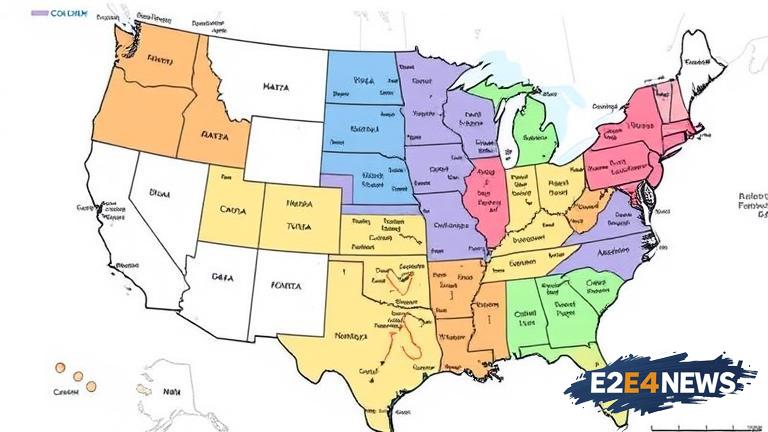In a significant ruling, a federal judge has determined that Utah’s congressional map, which was established in 2021, must be redrawn to address concerns of partisan gerrymandering. The decision comes after a group of Utah residents filed a lawsuit alleging that the map was intentionally drawn to favor Republican candidates. The judge’s ruling has sparked a new debate on electoral fairness in the state, with many arguing that the current map unfairly disadvantages Democratic voters. The Utah Legislature will now be tasked with redrawing the congressional map, a process that is expected to be contentious. The ruling is a major victory for Democrats in the state, who have long argued that the current map is unfair. However, Republicans have expressed disappointment with the decision, arguing that it is an overreach of judicial authority. The case is likely to have significant implications for the 2024 elections, as the new map could potentially lead to more competitive races. The judge’s decision is also being seen as a test of the Supreme Court’s ruling in the Rucho v. Common Cause case, which determined that federal courts do not have the authority to hear partisan gerrymandering cases. Despite this ruling, the judge in the Utah case determined that the state’s congressional map was unconstitutional due to its partisan bias. The ruling has also sparked a wider debate about the role of the judiciary in ensuring electoral fairness. Many are arguing that the decision highlights the need for greater transparency and accountability in the redistricting process. Others are arguing that the ruling is an example of judicial overreach and that the decision should be left to the state legislature. The Utah Legislature has 30 days to redraw the congressional map, although it is likely that the process will take longer. The new map will need to be approved by the state legislature and signed into law by the governor. The ruling is also expected to have implications for other states, as it sets a precedent for how federal courts can address partisan gerrymandering claims. The decision is a significant development in the ongoing debate about electoral fairness and the role of the judiciary in ensuring that elections are free and fair. The ruling has also sparked a reaction from the national Democratic and Republican parties, with both sides weighing in on the decision. The Democratic Party has hailed the ruling as a major victory, while the Republican Party has expressed disappointment. The ruling is also expected to have implications for the 2024 presidential election, as Utah is a key battleground state. The decision has also sparked a wider debate about the need for electoral reform, with many arguing that the current system is broken and in need of overhaul. The ruling is a significant development in the ongoing debate about the role of money in politics and the impact of partisan gerrymandering on electoral outcomes. The decision has also highlighted the need for greater transparency and accountability in the redistricting process, with many arguing that the current system is opaque and prone to abuse. The Utah Legislature will now be tasked with drawing a new congressional map that is fair and representative of the state’s voters. The process is expected to be contentious, with both parties likely to have competing interests and agendas. The ruling has also sparked a reaction from the state’s governor, who has expressed disappointment with the decision. The governor has argued that the ruling is an overreach of judicial authority and that the decision should be left to the state legislature. The decision has also highlighted the need for greater civic engagement and participation in the electoral process, with many arguing that voters need to be more informed and involved in the redistricting process. The ruling is a significant development in the ongoing debate about electoral fairness and the role of the judiciary in ensuring that elections are free and fair. The decision has also sparked a wider debate about the need for electoral reform, with many arguing that the current system is broken and in need of overhaul.
